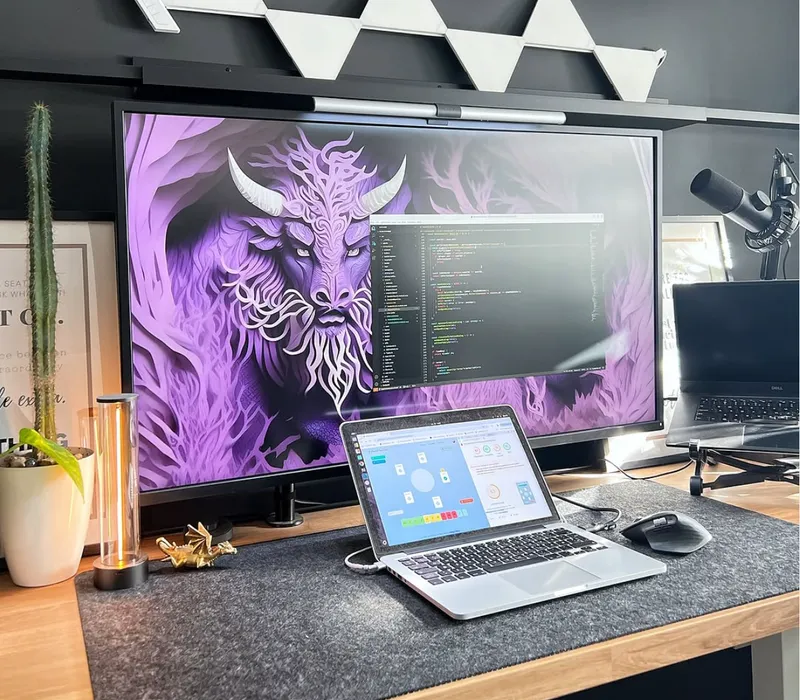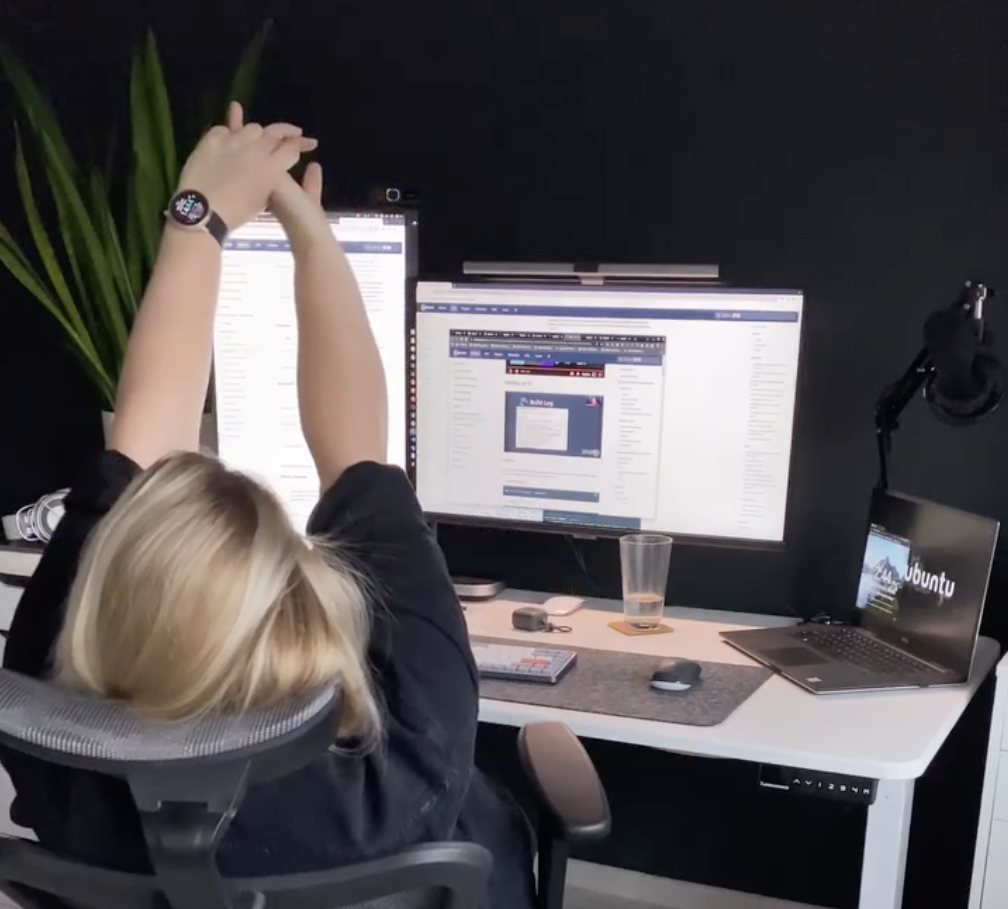Is motivation important?
Learning regularly keeps your brain sharp, helps you come up with new ideas, which helps you face tough times with confidence and strength.

Do you sometimes feel a lack of motivation?
Personally, I rarely do! I'm new to coding, and I love it. It might be because I don't have any previous experience in this field—everything is fresh and new, and I haven't gotten tired of it yet. I feel more and more obsessed with coding every day.
But is it really just about motivation?
I don't think so! If you want to learn to code, develop the habit of coding every day, even if you don't feel motivated or inspired to write a single line. Don't force yourself, but make learning a part of your daily routine anyway. Why? What if you never feel motivated to do it? You might never progress or even start!
A small step forward is a step in the right direction!
The Myth of Constant MotivationWe often see social media posts glorifying the "hustle" and portraying successful developers as constantly motivated coding machines. This creates unrealistic expectations. The truth is that even the most passionate developers experience periods of low motivation.
What separates successful developers from those who give up isn't constant motivation—it's building systems that keep them moving forward even when motivation fades.
Why Habits Trump MotivationMotivation is like a wave—it rises and falls naturally. When you rely solely on motivation, your progress follows this same inconsistent pattern. Here's why habits are more powerful:
- Habits don't require decision-making energy. Once established, they happen automatically.
- Habits compound over time. Small daily actions lead to massive results.
- Habits persist when motivation disappears. They're your safety net during low periods.
- Initial excitement (everything is new and fascinating)
- The dip (challenges increase, progress slows)
- Competence (skills improve, confidence returns)
- Mastery (deep satisfaction from solving complex problems)
- Morning ritual: 20 minutes of coding with coffee before starting my day
- Lunchtime learning: Reading coding articles or watching short tutorials
- Evening practice: 1-2 hours of focused project work
- Weekend deep dive: Tackling more complex problems or starting new projects
Here are practical strategies I've used to build my coding habit:
1. Start Ridiculously SmallDon't commit to coding for hours each day. Instead, start with just 15-20 minutes. This makes it nearly impossible to skip due to "not having enough time."
My personal rule: I commit to writing at least 10 lines of code daily. Often, once I start, I naturally continue for much longer.
2. Attach Coding to an Existing HabitHabit stacking is powerful. Attach your coding practice to something you already do consistently:
• "After I drink my morning coffee, I will code for 20 minutes."
• "Before I watch Netflix in the evening, I will solve one coding problem."
3. Create a Dedicated Coding EnvironmentI've set up a specific space for coding that contains minimal distractions. When I sit in this space, my brain automatically switches to "coding mode."
Your environment can be a powerful trigger for your habits. Even something as simple as a specific playlist that you only listen to while coding can serve as a mental trigger.
4. Track Your Progress VisuallyI keep a simple calendar where I mark each day I code with an X. This creates a chain that becomes increasingly satisfying to maintain.
As Jerry Seinfeld famously advised: "Don't break the chain." There's something deeply satisfying about seeing your consistent effort visualized.
5. Join a CommunityAccountability dramatically increases your chances of sticking with a habit. I joined several coding communities:
• A Discord server for beginners
• A weekly virtual coding meetup
• A coding buddy I check in with daily
When others expect to see your progress, you're more likely to show up even on low-motivation days.
Handling the Inevitable Motivation DipsEven with solid habits, you'll experience periods of low motivation. Here's how to navigate them:
1. Recognize the Learning CurveThe excitement of coding follows a predictable pattern:
Understanding this pattern helps you recognize that motivation dips are normal and temporary, not signs that you should quit.
2. Rotate Projects and Learning MethodsWhen I feel my enthusiasm waning for a particular project, I switch to something different:
• Move between tutorial learning and building personal projects
• Alternate between front-end and back-end tasks
• Try a completely different programming language for a day
This variety keeps learning fresh while still building valuable skills.
3. Celebrate Small WinsI keep a "wins journal" where I document even tiny coding achievements:
• Debugging a frustrating error
• Understanding a complex concept
• Implementing a new feature
• Helping another beginner solve a problem
Regularly reviewing these wins reminds me of my progress when motivation is low.
Finding Your Intrinsic MotivationExternal motivators (like wanting a high-paying job) can get you started, but long-term consistency comes from connecting with intrinsic motivations:
1. AutonomyCoding gives you the power to create anything you can imagine. I love the freedom of being able to build solutions to my own problems.
2. MasteryThe constant growth in coding is deeply satisfying. There's always a new challenge, a new technology, or a more elegant solution to discover.
3. PurposeConnect your coding practice to something meaningful. I'm learning to build tools that can help others and potentially change lives.
My Personal Coding Routine #
Here's what works for me:
I don't hit all of these every single day, but having the structure helps me maintain consistency.
When to Push and When to Rest #
Learning to code is a marathon, not a sprint. Sustainable progress requires balancing effort with rest:
• Push when you're in a flow state and making good progress
• Rest when you feel mental fatigue affecting your problem-solving
• Reflect regularly on what you've learned and how far you've come
I've found that planned breaks actually improve my overall productivity and prevent burnout.
Building Your Coding Identity #
Perhaps the most powerful motivator is beginning to see yourself as "a coder" rather than "someone learning to code." This identity shift makes coding feel like an essential part of who you are rather than just something you do.
Small phrases make a difference:
• Instead of "I'm trying to learn coding," say "I'm a developer in training."
• Instead of "I hope to finish this project," say "I'm working on this project."
Conclusion: Consistency Over Intensity #
The developers I admire most aren't those who code in 12-hour bursts when motivation strikes. They're the ones who show up day after day, consistently making small improvements.
On days when motivation is high, enjoy the productivity boost! But build a system that carries you through when motivation inevitably dips.
Remember: You don't need to feel motivated to code. You just need to code.


